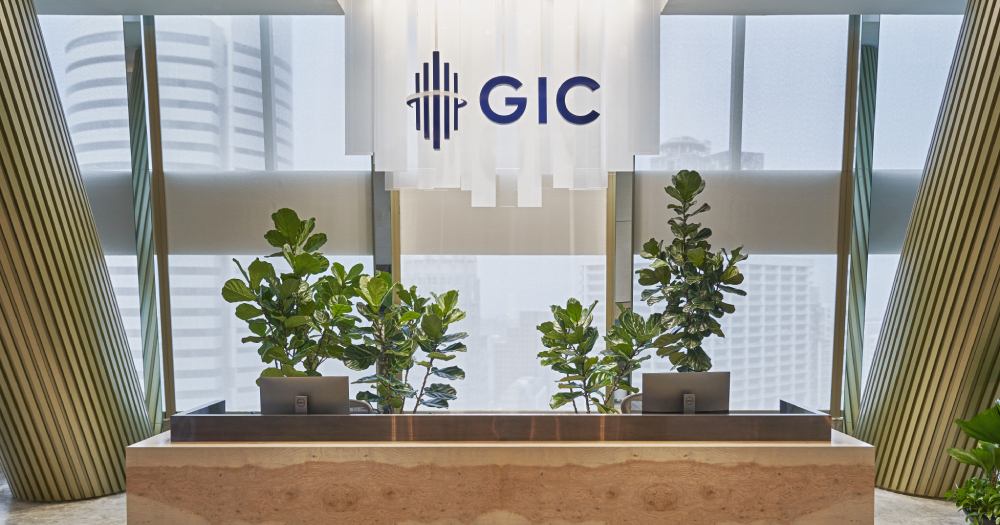Follow us on Telegram for the latest updates: https://t.me/mothershipsg
In their annual report for the financial year ending 2021, GIC spelled out its belief that sustainability was integral to achieving its mandate as a long-term investor managing Singapore's reserves.
"We believe that companies with strong sustainability practices offer prospects of better risk-adjusted returns over the long term," read the report.
Identifying climate change as "one of the defining long-term issues of this era", the report stated that climate change have a material impact on companies, affecting their operations and financial performance, and shaping their long-term value."
Climate change poses physical risk such as changes to availability of natural resources due to extreme weather events as well as governmental policies and markets will also respond to the effects of climate change, the report stated.
Incorporating sustainability into assessments
In 2016, GIC formalised its sustainability committee, expanding its on going incorporation of sustainable practices across the group.
Additionally, investors at the GIC have continued to take into account factors related to sustainability when making assessments of so-called bottom-up investments — a strategy that involves examining a company's fundamentals as opposed to first considering macroeconomic factors.
"This not only looks at the different measures — whether its carbon emissions or governance strength or diversity within the companies — but [also] really [helps] the companies walk through the journey that they may have to take in order to become more sustainable," said group chief investment officer Jeffrey Jaensubhakij at a briefing with media on Jul. 22.
The launch of GIC's Sustainable Investment Fund in July 2020, was another effort to focus investment in companies that are leaders in sustainability, as well as those that have a strong potential to successfully transition towards more sustainable business practices.
Jaensubhakij cited Duke Energy, an American power generation utility that GIC have invested in.
The company, he said, was transitioning from fossil fuel-related power plants and therefore had the opportunity to invest in renewable energy.
Working with companies to transition
As alluded to by Jaensubhakij, GIC exercises active ownership of its investee companies through voting and deliberate efforts to engage the companies.
"GIC’s votes are aligned with our beliefs on sustainability, and we do not outsource our voting" read the sovereign wealth fund's report.
In addition, GIC said its portfolio managers routinely engaged companies in their active portfolio on a range of topics.
Engagement on the issue of sustainability is prioritised with investees assessed to be most materially affected by climate change risks.
On the topic of moving away from carbon-heavy operations, chief executive officer Lim Chow Kiat said that GIC believes strongly in helping companies deal with the transition.
The challenge was particularly felt in emerging markets and Asia, Lim said, where many manufacturing and other carbon-heavy industries are based in.
"Our approach is to work with companies to make that transition happen," he said.
"So we have found that engaging with them, and working together to come up with ideas have been the most useful way. Rather than I guess, the alternate way — which would be to divest."
According to the report, GIC had supported Carbon Disclosure Project in its engagement of over 3,500 listed companies in its public equities portfolio. It has also engaged companies affected by sustainability-related controversies and those with high carbon intensity businesses in the past financial year on topics related to climate-risk mitigation and management.
Top image courtesy of GIC
If you like what you read, follow us on Facebook, Instagram, Twitter and Telegram to get the latest updates.

